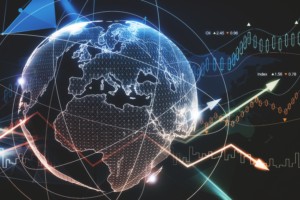Technology drives businesses. A perfect data analysis works well to succeed in a business. Every year, developments in major sectors are redefining the way people live, transact, and communicate. Due to the rapid pace of the modern world, overlooking new technology is virtually unavoidable. There are few platforms available to get a data analytics degree which is an expert essential to modern business, quality business operation to success in organizations.
Below is an update on the latest innovations that are disrupting the way companies do business.

Data Collection Analysis
Collecting data from a different source and analyzing it for the benefit of your platform. Analysis can be any type like predictive, prescriptive, diagnostic & manufacturing data analysis. The manufacturing analysis is useful for operation & events data as well as technology in manufacturing to ensure quality & performance.
Mobile Payments Technology
The mobile payments space is growing at an exponential rate. Global consulting firm Deloitte coined smartphone payments technology as the biggest trend in 2015. Alternative payment strategies through hand-held devices are getting a necessity in countries with obsolete infrastructure.
Countries such as India, Mexico, and Nigeria have adopted mobile payments as a method for distributing monthly salaries, purchasing goods, and sending financial support to under-banked individuals. For companies that cater to clients abroad and initiate transactions instantly, having the ability to stay in touch with international calling is an effective way to keep operations moving.
Mobile payments offer several solutions to both businesses and consumers. First, transactions are quick, which allows companies to streamline cash flow. This is ultimately where traditional banking fails due to lengthy processing periods, costly transaction fees, and limited availability.
Next, virtual payment methods are easy to use. Individuals can hold as many credit cards as they want digitally, avoiding theft and misplacement. When it comes to security, leading financial institutions worldwide are implementing higher standards to protect sensitive consumer payment data. Chip and PIN technology, EMV certification, and new authentication protocols are ways the industry is able to ensure that mobile payments hit the mainstream without major security breaches and hacks.
Nano Solar Cells
Nanotechnology is constantly improving the quality of green products such as solar cells. Gone are the days when harnessing the sun’s power depended on bright, sunny weather. Using the application of nano-dots, tiny particles that increase the efficiency of solar panels, homes, offices, and cars are able to generate power under mediocre outdoor conditions.
Smart Homes And Offices (Predictive Analytics)
The phrase “always connected” refers to smart devices and environments. In the past, computers, smartphones, laptops, watches, and other electronic devices functioned separately. Fast forward to today — all of these gadgets are connected around the clock through apps and networks.
Businesses that take advantage of smart devices are able to boost productivity in the workplace and optimize tedious processes. It is now possible to work on a proposal at the office and at home with other people making changes to the document through the cloud. But it doesn’t stop there.
Smart technology gathers data to provide users with an array of suggestions from healthy eating to clothing styles. Predictive analytics is embedded in smart devices. It helps individuals make the best decisions through compiled information. Wearables and app trackers are examples of gadgets that make use of predictive analytics. This form of technology only gets better and more accurate over time.
Driverless Cars
Tesla caught the planet unexpectedly with the primary electric-powered vehicle to hit the final market. But whereas most are centered on the chances of life while not gas expenses, new automobile technology is mutely rising within the type of driverless cars.
Pioneered by Google and Nissan, driverless cars are expected to make an even bigger impact than electric automobiles. Testing started a few years ago in major cities such as San Francisco, Seattle, and Boston. Top automotive companies, including GM, BMW, and Mercedes have expressed their willingness to manufacture vehicles that operate on computer grids and GPS guidance.
New regulations are currently being drafted to cater to the new transportation method. In addition to added convenience, businesses in the legal and insurance industry will be directly affected by the reduction of accidents caused by human error.
Eric Turkewitz of the Turkewitz Law Firm said, “With human error crashes reduced by software that automatically stops or slows the car, the number of broken bodies and cars will be reduced. The number of deaths will be reduced. Your insurance premiums will be (theoretically) reduced.”
Which new technology above do you think is the most important? Let us know what you think.
